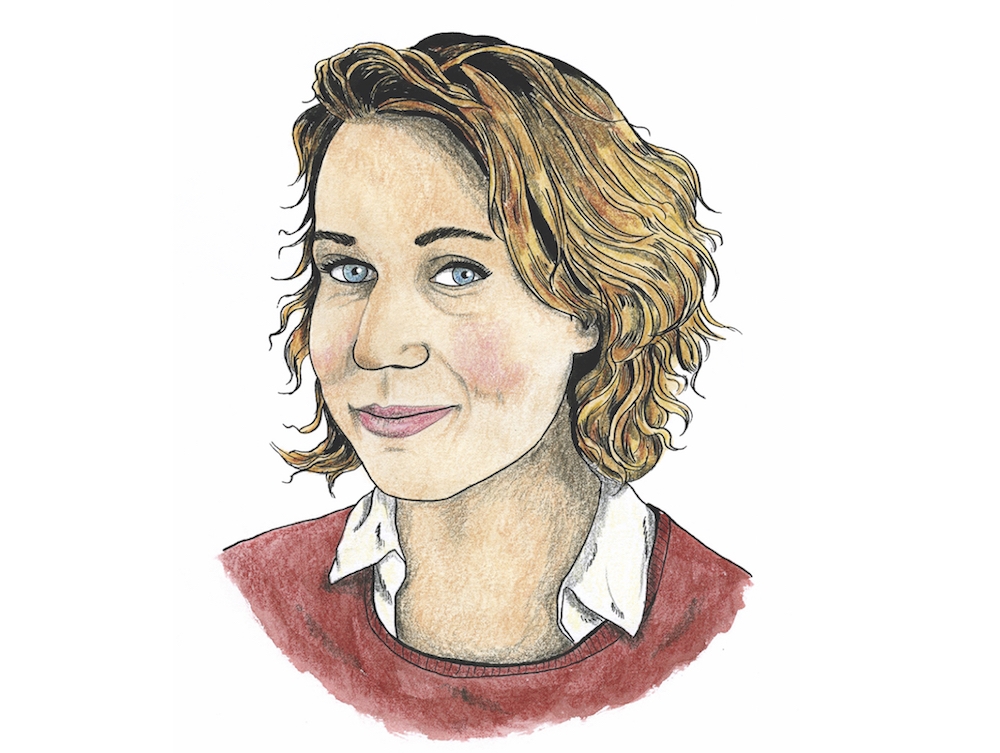Dispatch from East Timor
| by Claire Potdevin

Alumna Claire Potdevin is working as an advisor to the government of East Timor. In this essay she wrote for the 2018 Spring Communiqué she ruminates on the role and responsibility of the foreign advisor.
The first time a government minister asked for my opinion, I felt a surge of excitement—followed by atinge of apprehension. When you work for a government, the opportunity to advise the senior staff is immensely gratifying, if not a bit intimidating. It was only later that day, as I reflected on the meeting, that I realized there had been several older, more experienced, and, in my mind, better-informed people in the room. Yet I was the one he had asked for an opinion, and I wondered why.
I arrived about a year and a half ago in Dili, Timor-Leste, where I have been working as an advisor in the local Ministry of Finance. My fellowship program sends young economists to work for two years in the public service of a developing country. I was assigned to Timor-Leste, a small nation in Southeast Asia, one of the youngest nations in the world. Timor only gained its independence 15 years ago, after fighting for decades against successive Portuguese and Indonesian occupations. Being such a young state, with a population that had had in the last decades little or no access to education, meant that there was—there still is—a lot to do. Following independence in 2006, the nation was administered by the United Nations until the local capacity was built. The government of Timor-Leste took over at the end of 2012.
In a nation where everything had to be built or rebuilt from scratch after longstanding violent conflict, and yet with few trained people to do it, a strong reliance on foreign staff is understandable and expected. Technical assistance is needed in many areas of work, both to fill the knowledge gap and to build local capacity. But, without denying that external actors can provide a useful addition, there seems to be a belief that the foreigner always knows best.
Being part of the category of international advisors opens access to a strange but powerful form of privilege. It goes beyond the multiple work benefits and a salary not offered to your local counterpart and could be defined as the right to have a voice that resonates above others. My experience in Timor is that the status of foreigner—malae in Tetum, one of the main local languages—often provides an immediate legitimacy in the workplace, in a way that sometimes goes beyond the actual added value of the skills we, as outsiders, bring.
Being part of the category of international advisors opens access to a strange but powerful form of privilege.
By making this statement I do not mean to place blame on or devalue any of the work of the people who came before me and laid the groundwork for institutions and systems. I truly believe that Timor greatly benefited from a decade of experience sharing and capacity building. But the reality is that we often underestimate the potential impact of our presence. It is easy to forget that one day we will depart and leave behind a community, a project, or a country that will deal with the consequences of our decisions, whether these are beneficial or hurtful. The transient nature of our position often contrasts with the long-term impact of our decisions and their potentially damaging legacy.
It is even more important to realize the impact of “soft” knowledge. My Timorese colleagues have an understanding of their country and its institutions that I will never possess. Any economic policy decision is often less the simple application of an economic analysis and more the result of a series of intricate historical, political, and cultural factors. As months have gone by, I have gradually become aware that a lot of the systems I at first considered dysfunctional or inefficient actually exist for perfectly rational reasons. They are a result of a pragmatic and informed approach, which my outsider’s perspective was at first unable to understand.
This is a humbling experience. To have your voice heard so easily, it becomes at times tempting to forget to listen back to what our counterparts have to contribute. While an idea might make sense technically and academically, it can still be absolutely inappropriate for a particular context. There is no shortage of ideas and recommendations; the same cannot be said for capacity and space to apply those ideas. To fix this, we need to work alongside our local colleagues and take the time to understand each situation more thoroughly. More than anything, this requires going beyond this assumption we, as foreign experts, are too readily granted—that our theories and experience are “right”—and instead work to earn the trust placed in us. When you are not the most knowledgeable person in the room, it is a good idea to step back. So when a minister recently asked me my opinion on a topic I knew too little about, I simply told him so. After that meeting, one of his staff came to me. “Mana,” he said, using the familiar term one uses to address a woman, “Mana, if you want, I can explain to you a bit more about this.”
For More Information
Jason Warburg
jwarburg@middlebury.edu
831-647-3516
Eva Gudbergsdottir
evag@middlebury.edu
831-647-6606
